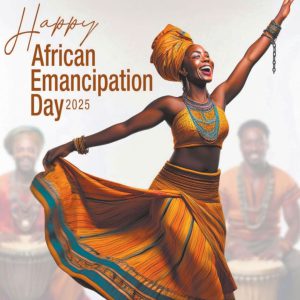A recent discussion with a colleague led to the framing of the above title, where he opined that only people involved in the fray of politics should speak about this topical issue. In other words, stay in your corner! What a myopic viewpoint!
Are we not all looking on at the vitriolic interplay that is happening in our society before the upcoming election? Should we not be alert to the “political dropouts” who have once again jumped on any bandwagon to flame their political ambitions? Is our mental health not affected when we hear the repeated rhetoric of politicians who promise more than they could ever deliver, in the face of the stark reality of jobless families?
Well! I can decry all that was once valuable to me in this society, or I can continue to hope for a mindset that is focused on political evolution and unity. Hence my alterverse – a reimagined alternate space where political systems and the complexities of our people converge to craft a society that strives for harmony.
Hold your horses! This is not a utopian idealistic framework, but a dynamic realm where governance is an ever-evolving tapestry, woven from the threads of our people’s diversity, ambitions, and the enduring hope for the common good of all, not only a few.
In this alterverse, political systems are not static; they adapt to the needs of the people, recalibrating as challenges arise, ever mindful of the differences that exist. This system tests the balance between individual ambitions and the collective welfare, knowing that co-operation among all parties involved, albeit difficult, can be a powerful tool for progress.
While decision-making is placed in the hands of those most equipped (and elected) to lead, the emphasis here is on decentralised governance, where communities can make localised decisions while remaining interconnected through shared goals, demonstrating the strength of grassroots action and mutual accountability.
As I imagined this possible scenario, the ever-pressing question came up. How would we manage the complexities of the human nature of politicians, businessmen and women and their relentless pursuit of power, money and status?
The political alterverse, far from pretending that human tendencies for ambition, competition, or even greed does not exist, instead embraces these tendencies as catalysts for growth. Ambition drives innovation, competition fosters excellence, and even the darker aspects of humanity are channelled into constructive outcomes through cultural and systemic design.
What’s the real driver here of this transformative societal shift? Empathy, not money, is our new currency where emotional intelligence (EQ) and understanding are prioritised, integrating them into education, leadership, and even economic systems.
Schools would emphasise teaching EQ skills like empathy, active listening, and conflict resolution alongside academic subjects. Economic success could be redefined not by profit alone, but by the human and emotional well-being generated – where companies can prioritise values like inclusivity and employee satisfaction over bottom-line metrics.
Empathy becomes the glue that holds these diverse entities together as they share a unifying thread – that is, a commitment by political leaders to fostering the common good.
A call for change in the road ahead
A shift is definitely needed now – from divisive rhetoric, the constant bickering which overshadows meaningful discussions about policies and solutions and the performative plays of politicians, to a shift in genuine connections and understandings. As we approach another milestone of governance in April under this political umbrella, let us ensure we do the following:
1. Establish core principles and ensure fairness in access to resources and opportunities, addressing systemic disparities. Guarantee universal healthcare and education for all. Incorporate empathy and critical thinking into education systems, cultivating citizens who prioritise collaboration over individual gain.
2. Design mechanisms that actively involve diverse groups in decision-making, recognising the cultural, social, and economic differences. Build robust systems to prevent corruption and abuse of power.
3. Blend governance models where equity and collective welfare are embedded as foundational values and where expertise and accountability drive decision-making, such as appointing qualified leaders in specialised roles (eg climate action or public health).
4. Decentralise current frameworks and allow communities the autonomy to address local concerns, while maintaining alignment with national or global goals. Use platforms for public participation, where people can contribute ideas, vote on initiatives, and engage in transparent dialogue.
Finally, and most importantly, rotate leadership. Create systems where leadership in ministries can rotate regularly, reducing the obsessive concentration of power, the stagnancy that currently exists in many critical leadership positions, and where diverse perspectives can be fostered.
This above all (and I quote my muse, Shakespeare) – “To thine own self be true, and it must follow the night the day. Thou canst not then be false to any man.”
Take care.
DR MARGARET NAKHID-CHATOOR
(observer and listener, out of her corner)
Credit – Newsday Newspaper, (newsday.co.tt)
See the original article here.





